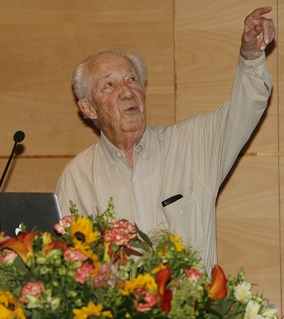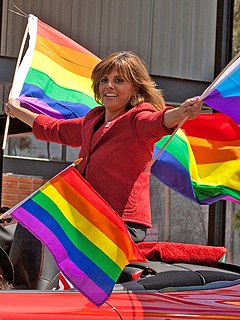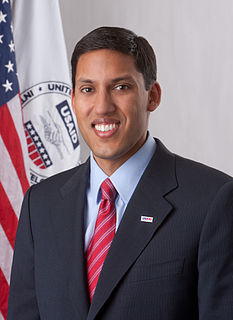A Quote by Michael Franti
If we do not change our negative habits toward climate change, we can count on worldwide disruptions in food production, resulting in mass migration, refugee crises and increased conflict over scarce natural resources like water and farm land. This is a recipe for major security problems.
Related Quotes
Climate change, in some regions, has aggravated conflict over scarce land, and could well trigger large-scale migration in the decades ahead. And rising sea levels put at risk the very survival of all small island states. These and other implications for peace and security have implications for the United Nations itself.
The cost of our success is the exhaustion of natural resources, leading to energy crises, climate change, pollution, and the destruction of our habitat. If you exhaust natural resources, there will be nothing left for your children. If we continue in the same direction, humankind is headed for some frightful ordeals, if not extinction.
A refugee in the traditional vision is someone who flees from country to another because of persecution or conflict. But what we're witnessing now more and more is a certain number of mega-trends interacting with one another: population growth, urbanization, food insecurity, water scarcity, climate change, and conflict.
With climate change and health crises rightfully receiving international attention, the time has come to focus on hunger as a top priority. WHO regards hunger and malnutrition as the gravest threat to public health, and climate change threatens to further destabilise already fragile food-production systems.
Some global hazards are insidious. They stem from pressure on energy supplies, food, water and other natural resources. And they will be aggravated as the population rises to a projected nine billion by mid-century, and by the effects of climate change. An 'ecological shock' could irreversibly degrade our environment.
You might not see climate change as an immediate threat to your job, your community, or your families," Kerry said. "But let me tell you, it is." He continued, "climate change is directly related to the potential of greater conflict and greater instability. I'm telling you that there are people in parts of the world - in Africa today, they fight each other over water. They kill each over it. And if glaciers are melting and there's less water available and more people, that is a challenge we have to face.



































